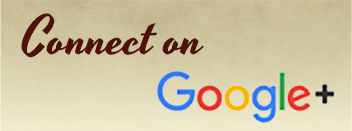Lay Anglicana, the unofficial voice of the laity throughout the Anglican Communion.
This is the place to share news and views from the pews.
Epiphany 3: Perception
21 January 2007
Nehemiah 8:1-3, 5-6, 8-10, Luke 4:14-21, Psalm 19:1-6 The heavens tell out
Be not overcome of evil, but overcome evil with good. Romans 12:16
Today's thought is all about perception. The eye transmits images to the brain upside down and it is the brain which turns them up the right way to make sense of what it sees: the eye and the brain have to work together to make sense of reality. But it doesn't take much to deceive the eye, as anyone who has been taken in by a conjuror knows only too well.
Today's illustration looks like an angel holding a torpedo, at least that is what I thought when I first looked at it. But my brain told me this couldn't be right, for one thing torpedoes hadn't been invented when the painting was done, secondly angels don't carry missiles, and if you look again she is obviously meant to be playing a musical instrument.
You know about the duck test, don't you? The American ambassador to Guatemala in 1950 accused the Guzmán government of being Communist. He had no proof, but explained:
Suppose you see a bird walking around in a farm yard. This bird has no label that says 'duck'. But the bird certainly looks like a duck. Also, he goes to the pond and you notice that he swims like a duck. Then he opens his beak and quacks like a duck. Well, by this time you have probably reached the conclusion that the bird is a duck, whether he's wearing a label or not.
Most of us routinely operate the duck test in making sense of reality.
The 18th century Bishop Berkeley believed that matter does not exist except in the mind of an observer, and called this belief 'Idealism'.
This view of the world was mocked by many, perhaps most effectively by Monsignor Ronald Knox:
There was once a man who said `God
Must think it exceedingly odd
If he finds that this tree
Continues to be
When there's no one about in the Quad.'
The point was amplified by Anon:
Dear Sir, Your astonishment's odd:
I am always about in the Quad.
And that's why the tree
Will continue to be,
Since observed by Yours faithfully, God.
There is never just one way to look at something - there are always different perspectives, meanings, and perceptions, depending on who is looking:
It was four men of Indostan
To learning much inclined,
Who went to see the Elephant
(Though all of them were blind)
That each by observation
Might satisfy his mind.The First approached the Elephant,
And happening to fall
Against his broad and sturdy side,
At once began to bawl:
'God bless me! but the Elephant
Is very like a wall!'The Second, feeling of the tusk,
Cried, 'Ho! what have we here
So very round and smooth and sharp?
To me 'tis mighty clear
This wonder of an Elephant
Is very like a spear!'The Third approached the animal,
And happening to take
The squirming trunk within his hands,
Thus boldly up and spake:
'I see,' quoth he, 'the Elephant
Is very like a snake!'The Fourth reached out an eager hand,
And felt about the knee.
'What most this wondrous beast is like
Is mighty plain,' quoth he;
'Tis clear enough the Elephant
Is very like a tree!'
And so these men of Indostan
Disputed loud and long,
Each in his own opinion
Exceeding stiff and strong,
Though each was partly in the right,
And all were in the wrong!Moral:
So oft in theologic wars,
The disputants, I ween,
Rail on in utter ignorance
Of what each other mean,
And prate about an Elephant
Not one of them has seen!'
The Blind Men and the Elephant' by John Godfrey Saxe
But is there an elephant? Of course there is! That is the objective reality, independent of anyone's opinion. Truth is complex, multi-faceted, and at times very difficult to grasp. But it's not relative. The truth is out there. It's objective and it's real. It is just our perception that is the problem:
If the doors of perception were cleansed, everything would appear to man as it is, infinite. For man has closed himself up, till he sees all things thru' chinks of his cavern. William Blake
And, as Saint Paul said:
For now we see through a glass, darkly; but then face to face: now I know in part; but then shall I know even as also I am known. 1 Corinthians 13:11
When we were children, my father used to tell my sister and me the adventures of a boy called Roderick. We thought he made them up, but I later discovered they were mostly Greek and Roman myths retold. They usually had a moral at the end, one of which was:
You must always carry with you binoculars and an empty matchbox. Then, when you meet a dragon, you can quickly look at it through the wrong end of the binoculars, making it small enough to put in your matchbox. Do not attempt to throw the matchbox away, but put it at the back of a chest of drawers in the attic. (Some problems can't be solved, or made to go away, but they can be dealt with if you learn how to think of them in the right way).
A very brave man, who is suffering from motor-neurone disease, roared with laughter as he told me over Christmas about the reaction of an Italian friend of theirs when told of his illness: You say he is in no pain? And he still has his brain intact? And everything is done for him? It's not so bad, this disease!
That's what I call courage.
Atheists like Albert Camus explain the limit of their beliefs:
I feel my heart beat inside me, so I believe it exists. I can touch the world, so I believe it exists. All my knowledge terminates at that point. The rest is hypothesis.
But we have just seen how unreliable our senses are as a measure of reality. Le Petit Prince understood the right way to detect God:
It is only with the heart that one can see rightly; what is essential is invisible to the eye.
Antoine de Saint Exupéry.
Or, to put it another way:
Immortal, invisible, God only wise,
In light inaccessible hid from our eyes...
All laud we would render, O help us to see,
'Tis only the splendour of light hideth thee.
Walter Chalmers Smith
Grant us, O Lord, the royalty of inward happiness, and the serenity which comes from living close to thee. Daily renew in us the sense of joy, and let the eternal Spirit dwell in our souls and bodies, filling every corner of our hearts with light and gladness; so that we may be diffusers of life, and meet all that comes with gallant and high-hearted happiness, giving thee thanks always for all things. Amen
Prayer used at the annual service of the Order of St Michael and St George, adapted from a prayer of Robert Louis Stevenson.




